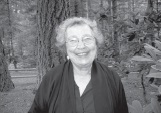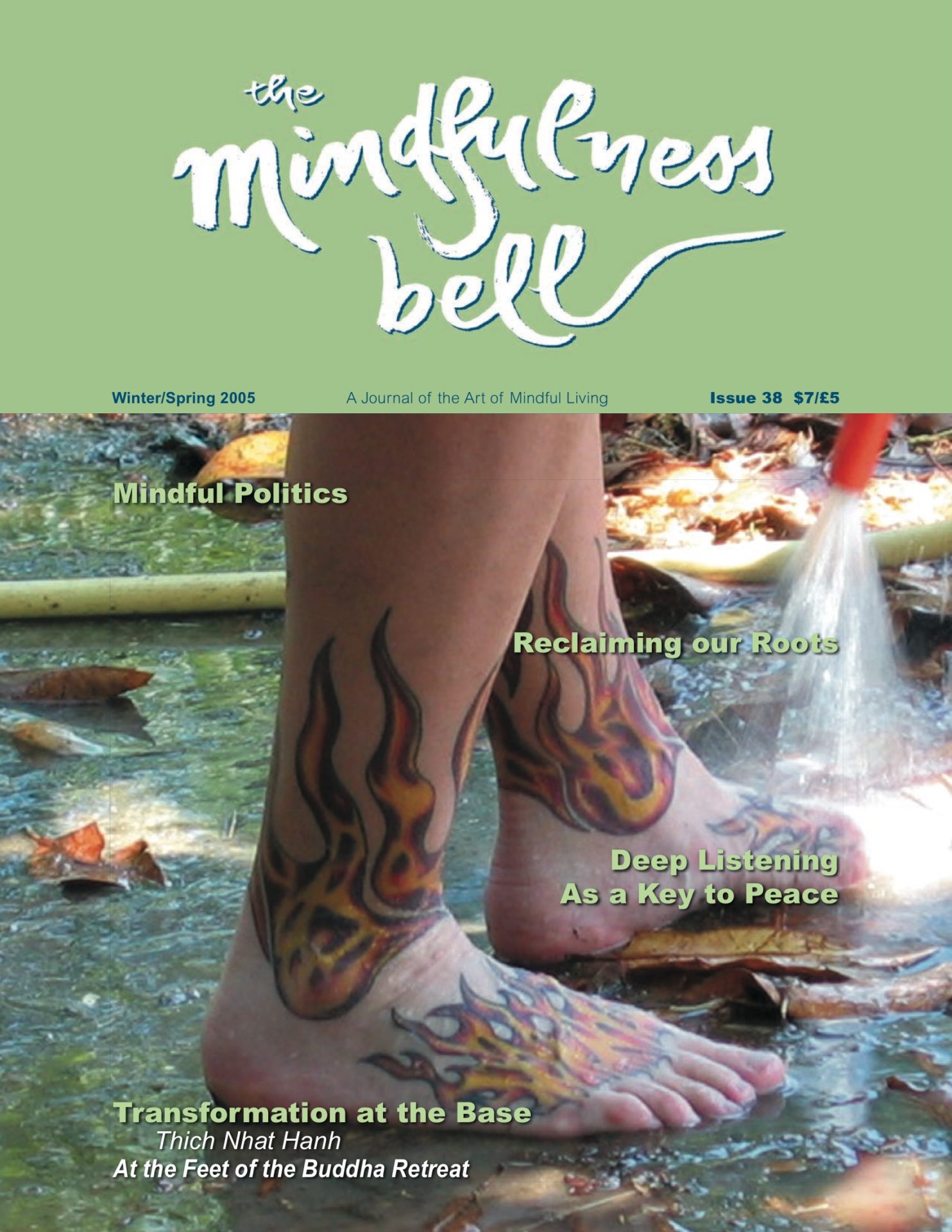By Margaret Kirschner
If we feel there is someone we cannot help, it is only because we have not yet looked deeply enough into his or her circumstances. —Thich Nhat Hanh (1)

I was feeling a deep and discouraging helplessness about the suffering of a loved one when a dear Sangha friend, Mary, was able to hear my despair Her calm nonjudgmental listening opened the door for me to pour out my helplessness,
By Margaret Kirschner
If we feel there is someone we cannot help, it is only because we have not yet looked deeply enough into his or her circumstances. —Thich Nhat Hanh (1)

I was feeling a deep and discouraging helplessness about the suffering of a loved one when a dear Sangha friend, Mary, was able to hear my despair Her calm nonjudgmental listening opened the door for me to pour out my helplessness, and I had the strange sensation that I was pouring out my loved one’s pain as well. Through this experience, I gained a new understanding of how to listen. Always before, I had tried to deepen my listening skills by being the listener. This time, I was given a better understanding of what one needs in a listener by truly being heard.
My experience that day was that Mary stepped aside and let me solve my own problems. Her eyes held my pain and soothed me like a gentle mother. They gave me space to acknowledge my mistakes and to find solutions. Here are some things I noticed:
- It was helpful that she didn’t say “I understand” when I didn’t understand
- It was helpful that she gave no advice so that I could discover my own
- It was helpful that she said little, permitting my thoughts to flow without
- It was helpful that she remained calm in the midst of my chaos, offering an environment in which I could
- It was helpful that she didn’t give the impression that she knew the answers that I didn’t know
In that listening I began to remember the times when I had not felt helpless, the times when my loved one and the many others who sought my counsel, responded positively. They were the times I kept my balance, when I maintained the nourishment of my positive seeds. As my breathing calmed with my recall, I stopped crying and returned to mindfulness. I began to feel the stability gained through my own suffering. I could recall the Buddha’s trust in our inner awareness and joy, no matter how much pain hides it. I now understand that it is necessary for me to maintain that same trust whenever I am listening deeply. I wrote the following in tribute to Mary:
Listening is what I need when my thoughts are so tangled they have no beginning nor end.
Listening is what I need when my heart despairs into molten tar.
Listening, your silence tells me what I need to know. Listening, your eyes show me I am loved. Listening, your hugs free me from my own judgment.
You listen and awareness untangles my thoughts You listen and a peaceful path beckons to me You listen and your compassion overflows my heart.
Thay teaches us to listen with only one purpose: to offer someone an opportunity to empty his or her own heart. If you are able to keep awareness and compassion alive in you, then you can listen even if what the other person says contains a lot of wrong perceptions, condemnations, and bitterness. You can continue to listen because you are already protected by the nectar of compassion in your heart.
With our listening we offer confidence that the suffering person can find his or her way through. Thay suggests that at some later time we might give a word or two to suggest a better way, warning that “Truth heals, but it should be released in small doses over time, like a medicine. If you force the other person to drink all the medicine at one time, he will die.”(2) The nonjudgmental attitude that allows people to be where they are and the freedom to understand in their own time is essential. The trust in each person’s inner awareness without judgment and often without our understanding is why Buddhist psychology is the most effective approach I’ve found to a happy, healthy life.
My heart expanded with joy the day that Mary listened to me. And I know hers did too.
Margaret Kirschner, True Silent Sound, lives and practices in Portland, Oregon.
- Thich Nhat Hanh, Transformation at the Base, Berkeley, CA, Parallax Press, 2001, p. 41
- Thich Nhat Hanh, “Cultivating Compassion, Responding to Violence,” Mindfulness Bell, (September 13, 2001) p. 8

